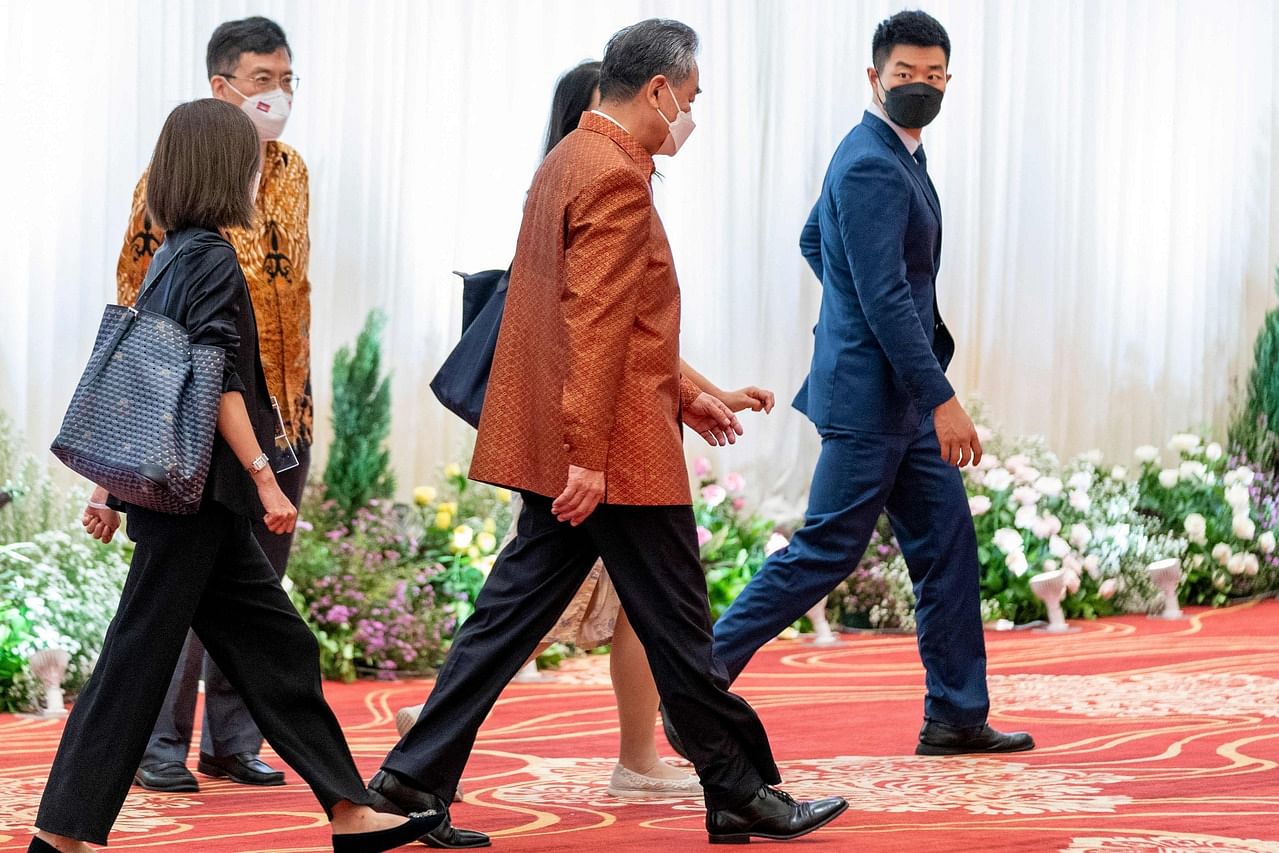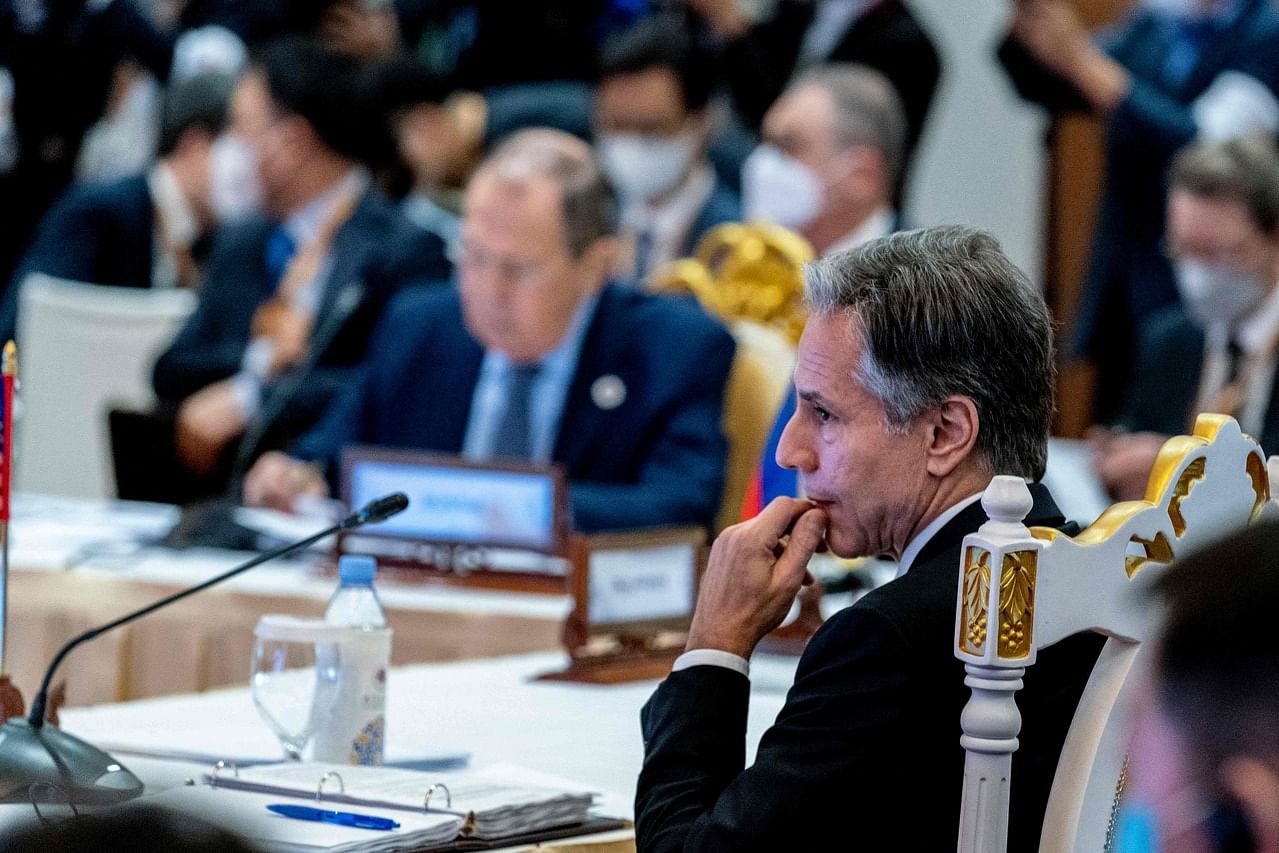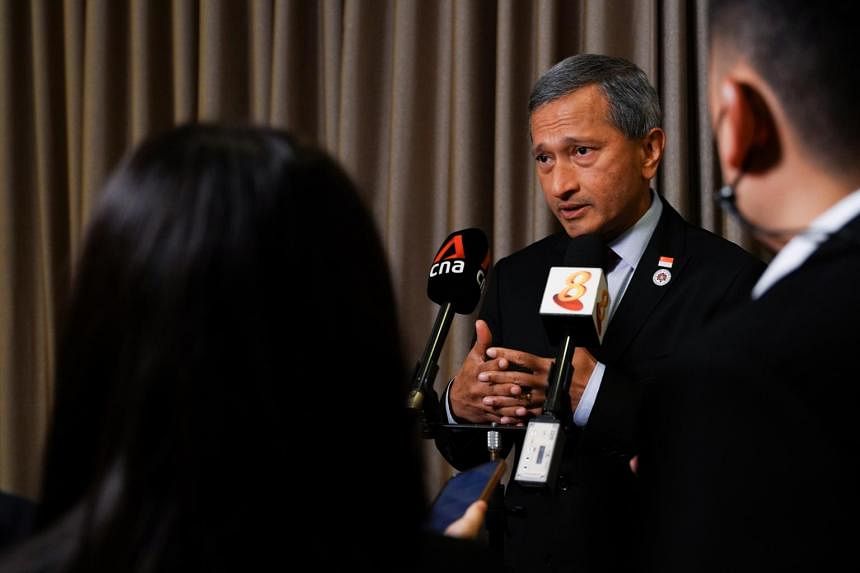PHNOM PENH - Asean countries want temperatures between the United States and China to come down, especially with military manoeuvres in the region bringing a real risk of accidents and miscalculations, said Foreign Minister Vivian Balakrishnan.
Both sides are not looking for conflict, but the situation now is dangerous for the region, he warned, underscoring how important it was for South-east Asia that the two superpowers get along.
Dr Balakrishnan was speaking to Singapore reporters on Friday (Aug 5) at the close of the 55th Asean Foreign Ministers' Meeting in Phnom Penh, where ministers from the grouping also met their counterparts from key partners, including China's Foreign Minister Wang Yi and US Secretary of State Antony Blinken.
Dr Balakrishnan said during these talks, he observed that both sides were not looking for conflict.
Recounting his conversation with Mr Wang on Thursday, Dr Balakrishnan said he conveyed that "the main danger is you've got a lot of ships and planes and missiles massed around there".
"Even though I know you don't want to go to war, there is a danger of accidents and miscalculations. So for what it's worth, we've made the appeal that for the rest of us in South-east Asia - we actually want temperatures to come down."
China embarked on its largest-ever live-firing military drill in the waters around Taiwan following a controversial visit by US House Speaker Nancy Pelosi to Taiwan on Tuesday and Wednesday.
Her visit has angered China, which had warned against it and called it a provocation, while the US said it did not change America’s one-China policy.
On Friday, Beijing announced that it would suspend cooperation with the US on a range of issues, including talks on climate change.
Dr Balakrishnan, who met Mrs Pelosi when she visited Singapore on Monday, noted that although her visit to Taiwan was not the first by a US House Speaker, it did take place at a very politically sensitive time for both China and the US.
This has contributed to raising the temperature and tensions on the ground, he added.
He said he understood why both sides had to take a stand, for political reasons.
China takes the visit "very seriously", noted Dr Balakrishnan. "They've couched it in terms of territorial integrity, sovereignty. And you know, once you get into that, you actually have to take a very, very strong stand, which is what we are witnessing right now."
The breaking down of the relationship between the US and China means the potential end of a peaceful and prosperous period, said the minister. He said that at the end of the second world war, peace and prosperity came about due to globalisation, economic integration and free trade. This allowed countries, including Singapore, to rapidly progress.

But conflict between the superpowers means high prices, less efficient supply chains and a more divided, disruptive and dangerous world, warned Dr Balakrishnan.
"So those are the stakes. So when we make the appeal, please have a care. I know you have to compete, maybe even confront, but we all have skin in this game. And we do want America and China to get along," he said, referring to his request to Mr Wang.

In response to a question on the matter, Dr Balakrishnan noted that neither China nor the US has asked Asean member states to pick sides.
Asean operates on the principle of an "overlapping circle of friends", which works to find partnerships that can benefit one or many countries at the same time, he said.
For instance, while China is Asean's trading partner and vice versa, a lot of the trade involved also consists of intermediate goods that are ultimately also destined for markets in the US and the European Union, said Dr Balakrishnan.
"We are not looking for a line that bisects Asia, that forces countries to choose sides, invidious choices and false dilemmas."


